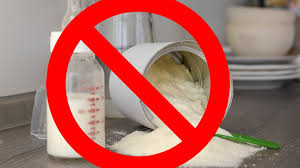Islamabad, Jan 27: The Sindh Assembly’s passing of the Sindh Protection and Promotion of Breastfeeding and Child Nutrition Act represents a significant step towards improving child health and nutrition in Pakistan. The law aims to regulate the sale of infant formula milk, which has become a widely used substitute for breastfeeding in the country.
Key provisions of the new legislation include:
- Doctor’s Prescription Required: Formula milk can only be sold if a doctor provides a prescription. This ensures that the use of formula is medically necessary, rather than a default option.
- Labeling as “Artificial Milk”: Formula milk must be clearly labeled as “artificial milk,” educating consumers about the difference between breast milk and formula.
- Rising Costs: The law responds to the financial burden that formula milk places on families. The costs range between Rs. 25,000 to Rs. 30,000 monthly, significantly affecting household budgets.
- Impact on Foreign Exchange: The heavy reliance on imported formula milk has contributed to a strain on Pakistan’s foreign exchange reserves. This law aims to reduce the country’s dependence on imports.
- Enforcement and Penalties: A monitoring board consisting of representatives from the Sindh Healthcare Commission and the Pakistan Pediatric Association has been set up to ensure compliance. Violators face serious penalties, including fines of up to Rs. 500,000 and potential jail time for doctors promoting formula milk.
- Exceptions in Emergencies: In emergencies, formula milk can only be used under medical supervision and for a limited period, ensuring that it is not used as a long-term substitute for breastfeeding.
This legislation marks a proactive effort to tackle the challenges surrounding breastfeeding rates in Pakistan, with the ultimate goal of improving infant health and reducing the financial strain caused by formula milk consumption.
